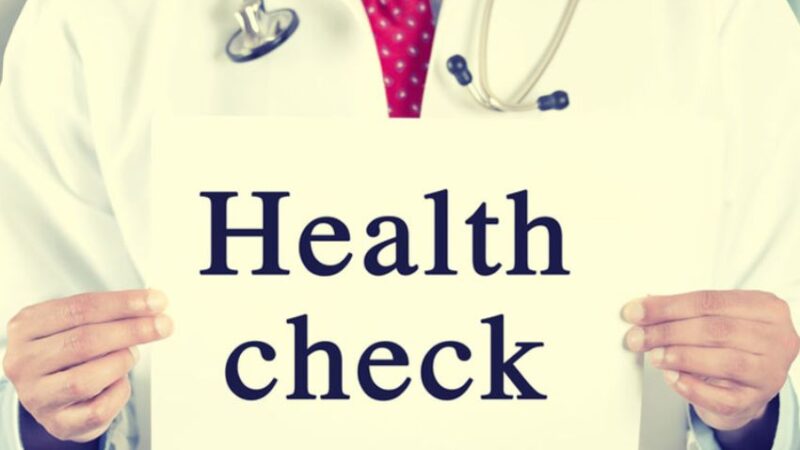How to Best Care for Your Vision as You Get Older
Your body undergoes several changes as you progress in life, and these changes may affect your vision over the years. Old people are more likely to encounter eye-related issues. However, people who take proactive steps and adopt healthy habits can preserve their vision and promote optimal eye health.
You may wonder what these steps and habits could be, so this article is for you. It will explain to you how you can take care of your vision as you grow older.
Regular Eye Examinations
Regular eye check-ups are a basic requirement for maintaining optimal eye health as you age, especially if you want to treat age-related optical issues at the earliest. Some eye-related issues show up as you age; for instance, people are more likely to get Presbyopia when they grow older. If you’re wondering “What is Presbyopia?” visit an eye specialist. They will explain to you what Presbyopia is and educate you on other eye-related issues and determine if you are at risk. They will also monitor age-related macular degeneration and conditions like cataracts and glaucoma. Your eye care professional can prescribe corrective lenses, such as reading glasses or multifocal lenses, to help you comfortably read and see objects up close.
Maintaining a Balanced Diet
The requirement to maintain a well-balanced diet becomes more important as you grow older because it is not only beneficial for overall health but also plays a vital role in supporting eye health as you age. A diet that features zinc, omega-3 fatty acids, and vitamins C and E plays a starring role in supporting your eye health. People who increase their intake of leafy greens like spinach and kale, colorful fruits like oranges and berries, nuts, and fish like salmon and tuna are more likely to have a healthy sight.
Shielding Your Eyes from UV Rays
There are certain things like harmful UV rays which are more susceptible to causing damage to your vision. So, protecting your eyes from them is critical. Prolonged exposure to UV rays can make you more likely to get cataracts, pterygium, and photokeratitis. So, when you are choosing sunglasses, opt for ones that provide 100% protection against UVA and UVB rays. Polarized lenses can also reduce glare, in this situation, and make it easier for you to view things properly in bright areas. You may even wear a wide-brimmed hat to shield your eyes and surrounding areas from direct sunlight.
Kicking the Habit – Quitting Smoking
Everyone is aware that smoking takes a serious toll on one’s overall health. A lesser-known fact is that it can harm your eyes as well. Those harmful chemicals lurking in tobacco smoke can wreak havoc on the blood vessels in your eyes, setting the stage for a host of eye issues, like age-related macular degeneration (AMD) and cataracts. Not only that, but it also increases the odds of optic nerve damage, putting your vision at risk. Nevertheless, if you kick the smoking habit, it can be a game-changer in safeguarding your eyes as you grow older.
Adequate Lighting and Tackling Digital Eye Strain
Proper lighting is essential for maintaining good vision, especially as you age. As you get older, your eyes require more light to see clearly. Ensuring adequate lighting in your home, particularly in areas where you read, work, or engage in close-up activities, is essential to prevent eye strain and fatigue. If you use digital devices like computers, tablets, and smartphones, be mindful of digital eye strain. You may set the 20-20-20 rule for yourself which is a simple yet effective way to reduce eye strain. To adopt it, you are supposed to take a 20-second break where you look at something that is twenty feet away from you after every 20 minutes of screen time.
Managing Chronic Conditions
Lastly, managing chronic conditions like diabetes and hypertension is crucial for maintaining good eye health as you age. These conditions can have a significant impact on the blood vessels in the eyes and may lead to vision-related complications if left uncontrolled. Therefore, you are supposed to visit your physician regularly and follow their guidelines. Your eye health will improve further if you become more manageable if you adopt a healthy lifestyle and include exercise and a healthy diet in your daily routine.
Conclusion
As your body experiences various changes with age, your eyes are no exception. However, you can safeguard your precious gift of sight by adopting a proactive approach and incorporating healthy habits into your daily routine. Regular eye exams, a balanced diet, UV protection, quitting smoking, proper lighting, and managing chronic conditions are key to preserving your eyesight. If you adopt these habits, you can reduce the risk of age-related eye issues and enjoy clear vision throughout your life.

Deepa Mahar is an independent blogger and admin of DeepAdvices who is exploring the beauty of the blog writing from a variety of subjects and books to health, science and others. She believes the blog would be helpful to the reader in the context of knowledge. She is post-graduated with a degree of Biotechnology.





